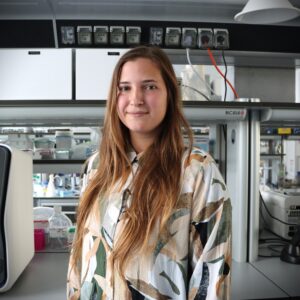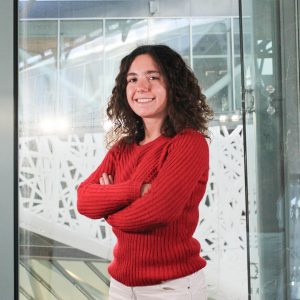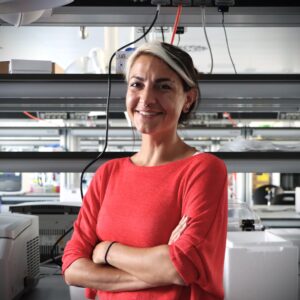
Iorio Group
Iorio group’s Apps, Tools and Computable Manuscripts
The Iorio Group works at the interface of biology, machine learning, statistics and information theory with the goal of understanding and predicting how genomic alterations and molecular traits from other omics contribute to pathological processes, biological circuits’ rewiring and have an impact on therapeutic response in human cancers and other diseases.
Our research aims at advancing human health by designing algorithms, computational tools and novel analytical methods for the integration and the analysis of pharmacogenomics and functional-genomics datasets, with the objective of identifying new therapeutic targets, biomarkers and drug repositioning opportunities.
With our experimental collaborators, we are contributing to the creation of a comprehensive map of all the genetic dependencies occurring in human cancers, and to the development of a computational infrastructure for translating this map into guidelines for early-stage drug development and precision medicine.
The Iorio Group designs, implements and maintains bioinformatics methods and original tools for the assessment of cancer pre-clinical models, the pre-processing, analysis and visualisation of genome-editing screening data, for the in-silico correction of new-technology-specific biases in such data, and for the optimization of single guide RNA libraries for pooled CRISPR-Cas9 screens and other experimental settings.
We are also interested in big-data analytics, the development of biomedical predictive models based on non-biomedical data, and computationally efficient constrained randomization strategies for testing combinatorial properties in large-scale genomic datasets and networks.
Group members
-
 Francesco Iorio
Francesco Iorio
Research Group Leader -
 Fateema Hani Bazzi
Fateema Hani Bazzi
Undergraduate Intern -
 Lorenzo Mathieu Brochier
Lorenzo Mathieu Brochier
PhD Student -
 Ottavio Croci
Ottavio Croci
Senior Data Scientist -
 Irene Fernández Rebollo
Irene Fernández Rebollo
PhD Student -
 Raffaele Iannuzzi
Raffaele Iannuzzi
PhD Student -
 Athanasios Oikonomou
Athanasios Oikonomou
Postdoc -
 Flavio Passante
Flavio Passante
PhD Student -
 Ludovica Proietti
Ludovica Proietti
Postdoc -
 Nevenka Radic
Nevenka Radic
Postdoc -
 Aurora Savino
Aurora Savino
Postdoc -
 Vanessa Spagnolo
Vanessa Spagnolo
Technician -
 Yasin Tepeli
Yasin Tepeli
Scientific Visitor -
 Gianluca Vozza
Gianluca Vozza
Postdoc
Publications
-
01/2023 - Bioinformatics
A heuristic algorithm solving the mutual-exclusivity sorting problem
Motivation Binary (or boolean) matrices provide a common effective data representation adopted in several domains of computational biology, especially for investigating cancer and other human diseases. For instance, they are used to summarise genetic aberrations—copy number alterations or mutations—observed in cancer patient cohorts, effectively highlighting combinatorial relations among them. One of these is the tendency […]
-
01/2023 - Cell Reports Methods
An interactive web application for processing, correcting, and visualizing genome-wide pooled CRISPR-Cas9 screens
A limitation of pooled CRISPR-Cas9 screens is the high false-positive rate in detecting essential genes arising from copy-number-amplified genomics regions. To solve this issue, we previously developed CRISPRcleanR: a computational method implemented as R/python package and in a dockerized version. CRISPRcleanR detects and corrects biased responses to CRISPR-Cas9 targeting in an unsupervised fashion, accurately reducing […]
-
10/2022 - Nature
Phenotypic plasticity and genetic control in colorectal cancer evolution
Genetic and epigenetic variation, together with transcriptional plasticity, contribute to intratumour heterogeneity1. The interplay of these biological processes and their respective contributions to tumour evolution remain unknown. Here we show that intratumour genetic ancestry only infrequently affects gene expression traits and subclonal evolution in colorectal cancer (CRC). Using spatially resolved paired whole-genome and transcriptome sequencing, […]
-
07/2022 - Cell Reports
Reduced gene templates for supervised analysis of scale-limited CRISPR-Cas9 fitness screens
Pooled genome-wide CRISPR-Cas9 screens are furthering our mechanistic understanding of human biology and have allowed us to identify new oncology therapeutic targets. Scale-limited CRISPR-Cas9 screens—typically employing guide RNA libraries targeting subsets of functionally related genes, biological pathways, or portions of the druggable genome—constitute an optimal setting for investigating narrow hypotheses and are easier to execute […]
-
07/2022 - Molecular Systems Biology
Computational estimation of quality and clinical relevance of cancer cell lines
Immortal cancer cell lines (CCLs) are the most widely used system for investigating cancer biology and for the preclinical development of oncology therapies. Pharmacogenomic and genome-wide editing screenings have facilitated the discovery of clinically relevant gene–drug interactions and novel therapeutic targets via large panels of extensively characterised CCLs. However, tailoring pharmacological strategies in a precision […]